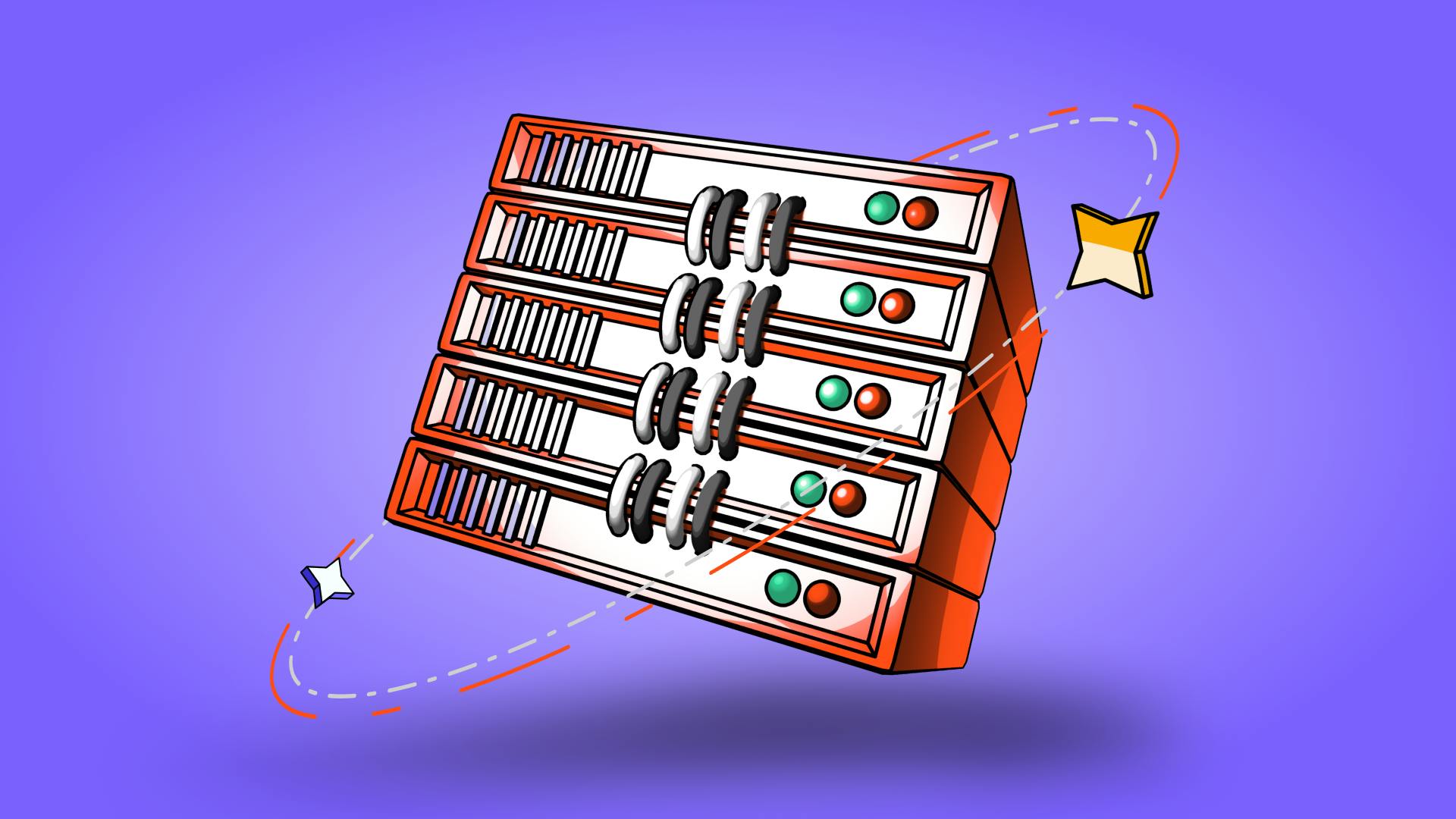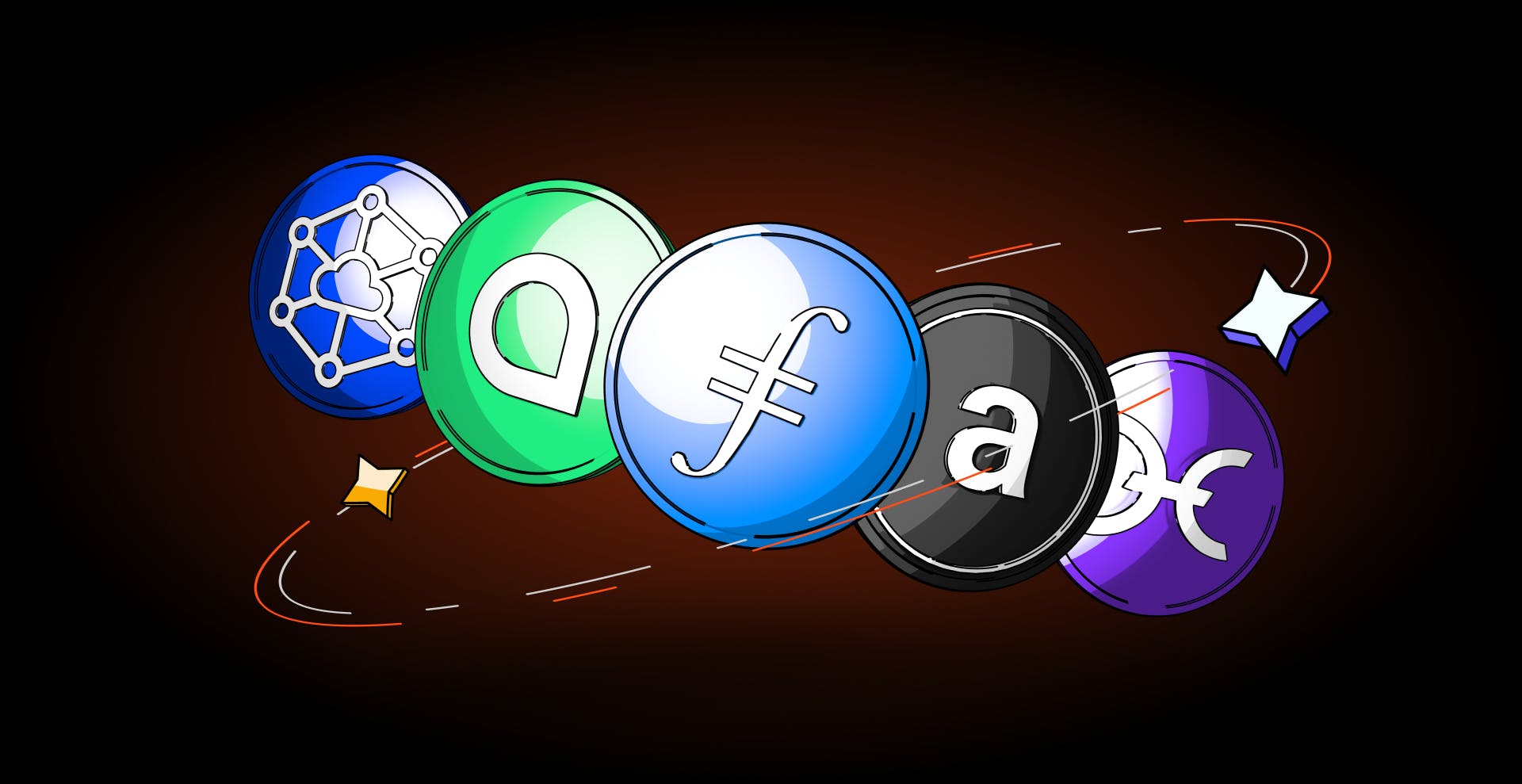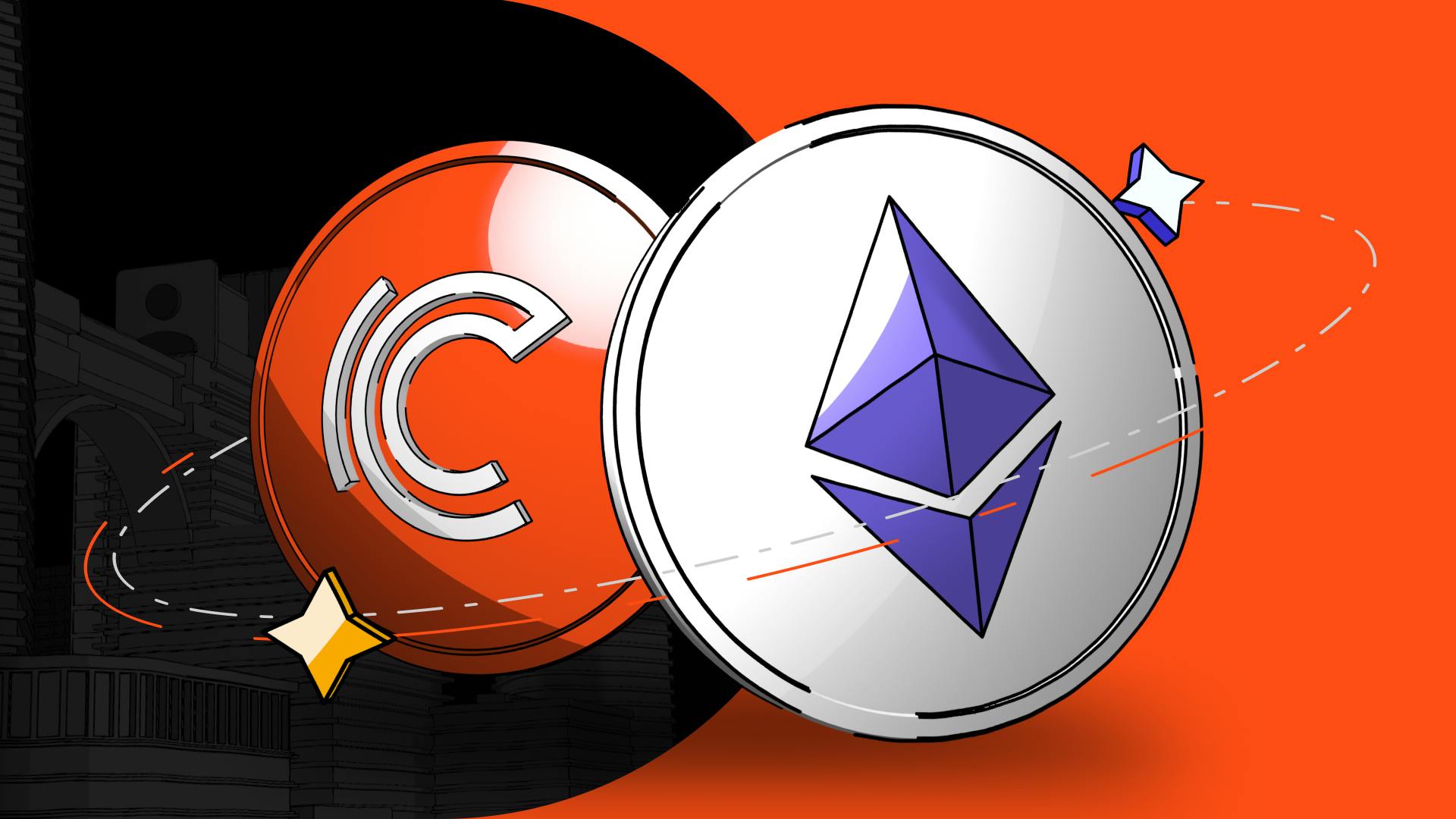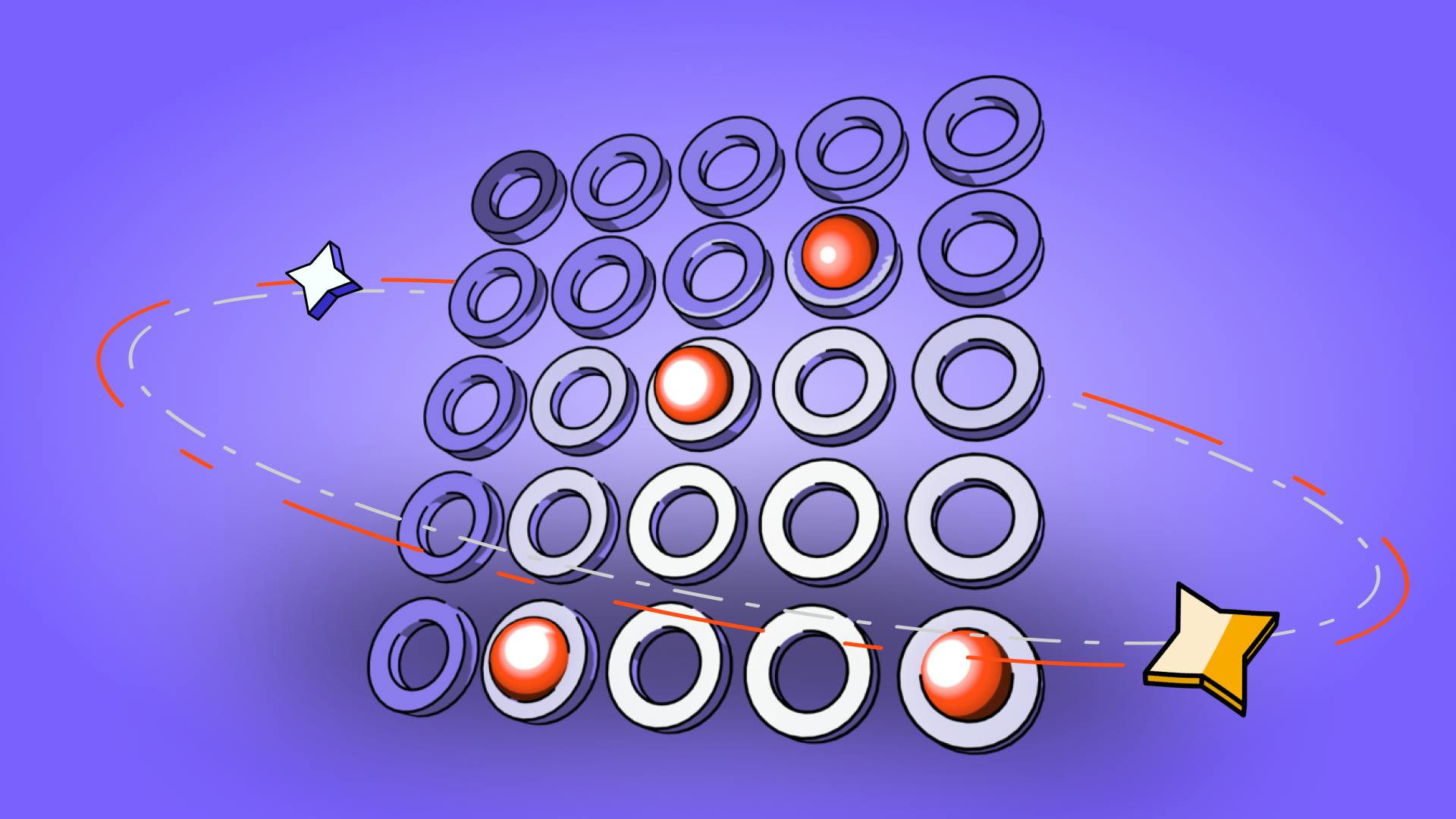5 Storage Tokens Every Crypto Enthusiast Should Dive Into This Year
5 de diciembre de 2025

by Kamil S
5 de diciembre de 2025
Storage tokens have emerged as a compelling asset class, revolutionizing the way we think about data storage and security. This new technology is introducing novel solutions for safeguarding digital information while upholding the principles of decentralization and efficiency. Storage tokens embody the future of data preservation, and their advent signifies a fundamental departure from traditional centralized storage models, addressing the security and privacy concerns that have long plagued digital data management. By embracing storage tokens, individuals and organizations can participate in a secure, distributed network that places control and ownership of data back into the hands of its users.
The world of decentralized storage is innovative, promising, and challenging at the same time, with various projects and platforms vying for the spotlight. As we delve deeper into this transformative asset class, it is essential to explore their diverse functionalities and distinctive features. By doing so, we can gain a more comprehensive understanding of the impact storage tokens have on data storage and security in the decentralized era: Storage tokens are driving a fundamental shift towards a more secure, efficient, and user-centric approach to data storage.
Storage tokens represent a class of digital assets designed to power decentralized storage networks. They act as a means of exchange and incentives for participants in the networks. These tokens facilitate the secure storage, retrieval, and management of data across distributed and often blockchain-based infrastructures. In essence, they underpin the backbone of decentralized data storage, promising a more secure and cost-effective alternative to traditional centralized systems.
The significance of storage tokens cannot be overstated. In an era where data is a critical commodity and concerns about centralized data storage and surveillance loom large, storage tokens may clear the smoke. They decentralize data storage, spreading it across a large network of nodes, enhancing data security, and ensuring data availability. By enabling anyone to participate in the network as a host or user, storage tokens promote inclusivity and data ownership, marking a critical step toward a more secure, private, and equitable digital age.
On the contrary, relying on a single entity for data storage means you have limited control and ownership of your own digital assets. Data can be subject to censorship, access restrictions, and potential loss, should the service provider face any downtime or decide to revoke your access. This stark contrast highlights the significance of storage tokens in creating a more resilient and secure data storage ecosystem.
As we dive into the realm of storage tokens, it's important to explore the different options available and understand their unique features and advantages.
Filecoin, often denoted by its ticker symbol FIL, plays a pivotal role in redefining the way we store and manage data, harnessing the power of blockchain and peer-to-peer networks. Below, we delve into the basics of Filecoin and its impact on the decentralized storage landscape.
Filecoin operates as a decentralized storage network built on the principles of blockchain technology. At its core, Filecoin serves a dual purpose: it empowers individuals and organizations to store their data securely while offering opportunities for network participants to monetize their spare storage capacity. This approach tackles the limitations and security concerns associated with traditional centralized storage services.
The primary purpose of Filecoin is to create a decentralized and trustless environment for data storage. When you upload your data to Filecoin, it's divided into encrypted fragments and distributed across a global network of storage miners. These miners, driven by financial incentives, allocate their storage resources to securely hold your data. The result is a distributed, redundant, and secure storage system that preserves your data's integrity and availability.
Filecoin boasts a multitude of key features that set it apart as a frontrunner in the realm of decentralized storage:
Decentralized Storage Marketplace: Filecoin operates as a marketplace for storage, allowing users to securely and cost-effectively store their data by selecting from a diverse pool of storage providers. This decentralized market is characterized by competition, ensuring competitive pricing and high availability.
High Security Measures: Filecoin takes data security to another level by encrypting your files before distributing them across its network. This encryption, coupled with its decentralized nature, shields your data from unauthorized access and data breaches.
Incentivized Storage Providers: A key innovation of Filecoin is its use of economic incentives. Storage providers (miners) are rewarded with FIL tokens for storing and providing access to users' data. This ensures that data is maintained reliably and that storage providers are motivated to deliver high-quality service.
Transparent Data Storage: Filecoin offers a verifiable data storage solution, allowing users to check that their data is stored correctly across multiple locations. This transparency boosts the reliability and security of data storage.
IPFS Integration: Filecoin seamlessly integrates with the InterPlanetary File System (IPFS), a distributed hypermedia protocol that revolutionizes content storage and retrieval, offering a robust and versatile solution. This integration enhances data retrieval and accessibility.
With its innovative approach to decentralized storage, Filecoin addresses the shortcomings of traditional centralized storage services while ensuring data security, accessibility, and reliability. Its unique features make it a notable project, revolutionizing how we store and manage data in the decentralized era.

Siacoin (SC) stands out in the world of decentralized storage as a cost-effective and secure solution for users looking to preserve their digital data with redundancy and reliability. In this section, we'll explore Siacoin's background, how it works, and why it has gained popularity as a preferred choice for storage.
Siacoin, abbreviated as SC, is a cryptocurrency that powers the Sia network, a decentralized storage platform. Founded by David Vorick and Luke Champine, the Sia project was introduced in 2013 and officially launched in 2015. The primary objective of the Sia network is to offer a more affordable and secure alternative to traditional cloud storage providers.
Siacoin operates on a blockchain that uses smart contracts to enable users to store data across a global network of hosts. These hosts, similar to miners in other blockchain networks, provide their storage space in exchange for Siacoins. When a user uploads data to the Sia network, it's divided into smaller segments, encrypted, and distributed across multiple hosts, ensuring redundancy and data protection.
Siacoin has garnered favor among users for several compelling reasons:
Affordability: Siacoin storage solutions are significantly more cost-effective than traditional cloud storage providers. Users can store their data at a fraction of the price while maintaining the same level of security and redundancy.
Redundancy: Siacoin employs a redundant storage model that ensures data durability. Your files are divided, encrypted, and stored on multiple hosts, reducing the risk of data loss due to hardware failures or other unforeseen circumstances.
Data Protection: Security is a paramount concern, and Siacoin addresses it by encrypting user data before it's distributed across the network. Users retain control over their encryption keys, providing an additional layer of data protection.
Decentralization: The Sia network's decentralized nature means that data is not stored in a single data center but across numerous hosts worldwide. This minimizes the risk of a single point of failure.
Siacoin (SC) offers a budget-friendly and reliable solution for data storage, appealing to users seeking secure storage options with redundancy. Its unique approach, cost-efficiency, and commitment to data protection have made it a favorite choice among those looking to embrace the advantages of decentralized storage.
Storj, a pioneer in the realm of decentralized cloud storage, presents an innovative approach to storing and securing digital data. Let’s delve into the essence of Storj, exploring its core mission and the unique attributes that set it apart as a leading solution for decentralized cloud storage.
Storj is a decentralized cloud storage platform that leverages blockchain technology and a global network of community-driven resources to provide a secure, efficient, and cost-effective storage solution. Founded in 2014 by Shawn Wilkinson, Storj's mission is to create a decentralized and robust storage infrastructure that ensures data privacy and redundancy while minimizing the environmental impact associated with traditional data centers.
At its core, Storj allows users to store their data on a distributed network of nodes. This network spans across the globe and operates in a peer-to-peer fashion, meaning that users can both store and share storage space in exchange for the platform's native cryptocurrency, STORJ. By doing so, Storj aims to tackle the challenges of centralized data storage by creating a community-driven, secure, and eco-friendly alternative.
Storj stands out in the realm of decentralized cloud storage due to its unique features and value propositions:
Data Encryption: Storj ensures data privacy and security by encrypting user data before it's stored on the network. Users retain control of their encryption keys, further enhancing data protection.
Decentralized Network: Storj operates on a decentralized network of nodes contributed by users worldwide. This model eliminates the need for centralized data centers and minimizes the risk of data loss due to hardware failures.
Redundancy: Similar to Siacoin, Storj adopts a redundancy model, where user data is divided into smaller pieces and distributed across multiple nodes. This approach guarantees data durability and accessibility.
Community-Driven: Storj relies on community participants who share their unused storage space. This collaboration not only empowers users to monetize their resources but also fosters a resilient and efficient storage network.
Eco-Friendly: By using underutilized storage capacity on existing hardware, Storj contributes to a more sustainable and eco-friendly approach to data storage, reducing the environmental footprint associated with traditional data centers.
In essence, Storj's decentralized cloud storage solution prioritizes data security, privacy, redundancy, and community collaboration. It reimagines the future of cloud storage by providing an efficient, cost-effective, and environmentally responsible alternative to centralized data storage providers.
Arweave, represented by the AR token, introduces a novel concept in the world of data storage – the promise of paying once and storing data forever. In this section, we'll explore the fundamentals of Arweave, shedding light on its unique approach to permanent file storage.
Arweave is a decentralized, blockchain-based platform designed to address one of the most pressing issues in data storage – the sustainability of data over time. Traditional storage solutions require recurring payments to maintain data accessibility, posing challenges for long-term data preservation. Arweave disrupts this model by offering users the ability to pay once for data storage, ensuring permanent retention without ongoing fees.
This innovative approach to data storage is made possible through the platform's unique "endowment principle." Users contribute AR tokens to store data, with the interest generated from these endowments covering the costs of maintaining the data indefinitely. As a result, Arweave redefines the notion of data permanence by removing the burden of subscription-based storage and ensuring that your data remains accessible forever.
Arweave's pioneering approach to data storage offers several distinct advantages:
Endowment Principle: Arweave's endowment principle ensures the sustainable, long-term storage of data. By allowing users to contribute tokens that generate interest over time, the platform effectively eliminates the need for recurring subscription fees.
Cost Efficiencies: Arweave leverages the efficiency of blockchain technology to provide a cost-effective solution for storing data permanently. Users pay only once, making it an attractive option for individuals and organizations looking to secure their data without ongoing financial commitments.
Long-Term Data Storage: Arweave's commitment to storing data indefinitely addresses the growing demand for preserving digital information over time. Whether it's important documents, historical records, or valuable content, Arweave ensures that your data remains accessible for future generations.
Arweave's AR token powers a unique and forward-thinking approach to data storage. By implementing the endowment principle, delivering cost efficiencies, and offering long-term data storage, Arweave provides a compelling solution for those seeking to safeguard their digital assets without the constraints of traditional subscription models.
Holo, represented by the HOT token, transcends traditional data storage and delves into the realm of distributed computing. Let’s explore Holo's vision and approach, as well as its distinctive features that set it apart in the world of distributed systems.
Holo represents a vision for a more decentralized and equitable digital world. At its core, Holo envisions a paradigm shift in the way we host and interact with applications and data. Instead of relying on centralized servers, Holo leverages excess computing capacity from a network of peers to power a new generation of peer-to-peer applications.
The foundation of Holo's approach lies in the Holochain framework, a unique and scalable distributed ledger technology. Unlike traditional blockchains, Holochain is agent-centric, meaning that every participant has their own chain with its own rules. This decentralized architecture fosters autonomy, enabling users to have greater control over their data and interactions.
Holo's innovation spans several key features that make it a remarkable player in the distributed computing arena:
Excess Computing Capacity: Holo taps into the surplus processing power of network participants. This unique approach allows users to become both consumers and providers of computing resources, transforming the internet's infrastructure into a shared, community-driven resource.
Peer-to-Peer Applications: Holo's ecosystem is all about empowering users to host and utilize peer-to-peer applications. By eliminating the need for traditional servers, Holo ensures that applications are more resilient, efficient, and community-driven.
Holochain Framework: The underlying Holochain framework offers scalability, adaptability, and the freedom to define your own data rules. This agent-centric approach is designed to prioritize user control, data privacy, and a shift away from the centralization of the internet.
Holo's HOT token represents not only a new way of thinking about computing but also a departure from the centralized models that have dominated the digital landscape. By harnessing excess computing capacity, embracing peer-to-peer applications, and adopting the Holochain framework, Holo pioneers a future where users have more agency and control over their online experiences.
The world of decentralized storage tokens is witnessing a transformative shift, offering innovative solutions for secure data preservation. These tokens redefine the way data is stored and managed, prioritizing decentralization, security, and cost-effectiveness. As we explored five prominent storage tokens, we gained valuable insights into the evolving landscape of data storage and security. Storage tokens are not only disrupting traditional centralized models but also providing a more user-centric and equitable approach to data storage, ultimately reshaping the digital age.
- Storage tokens are at the forefront of a data storage revolution, offering decentralized, secure, and cost-effective solutions.
- They tackle the limitations and security concerns of traditional centralized storage, putting data control back in the hands of users.
- Filecoin (FIL) is well positioned in the decentralized storage movement, ensuring secure and efficient data storage through its decentralized marketplace.
- Siacoin (SC) provides an affordable, redundant, and secure storage alternative that appeals to budget-conscious users.
- Storj offers decentralized cloud storage with unique features like data encryption, redundancy, and community-driven resources.
- Arweave (AR) introduces a groundbreaking concept, allowing users to pay once and store data forever through its endowment principle.
- Holo (HOT) goes beyond storage and ventures into distributed computing, offering a decentralized, agent-centric approach with excess computing capacity.
- As the decentralized storage token ecosystem continues to evolve, users have more options than ever to secure their data while embracing the principles of decentralization, security, and user empowerment. The future of data storage is decentralized, efficient, and user-centric, and these storage tokens are leading the way.
Join the Coinmetro community on Discord and Telegram, where forward-thinking traders and investors gather to share insights, explore new opportunities, and dive deep into the world of cryptocurrencies. Should you need any help, feel free to reach out to our world-class Customer Support Team via 24/7 live chat or email at hello@coinmetro.com.
To become a Coinmetro user today, Sign Up now, or head to our new Exchange if you are already registered and experience our premium trading platform.
Etiquetas
Artículos relacionados

Blockchain en la educación: transformando el aprendizaje y la acreditación
¿Qué pasaría si tu expediente académico pudiera verificarse al instante, en cualquier lugar del mundo? Esta es solo una de las preguntas que reflejan…
7m

Cómo comprar Ethereum (ETH) en Coinmetro - paso a paso
¿Quieres comprar Ethereum al instante sin complicaciones? Coinmetro lo hace rápido, sencillo y seguro. Esta guía te muestra los pasos simples para…
3m

Cómo hacer staking de Ethereum (ETH) en Coinmetro de forma rápida, sencilla y segura
¿Quieres ganar ingresos pasivos con tu Ethereum? Con Coinmetro, hacer staking de ETH es un proceso fluido, seguro y fácil para principiantes. En esta…
3m

El papel de la cadena de bloques en la trazabilidad de la cadena de suministro
En 2021, un escándalo sacudió al sector alimentario. Varios proveedores habían etiquetado carne caducada como si fuera fresca. El resultado fue la…
11m